10 Surprising Things Kids Learn at Camp
I would not be the person I am today without camp.
-15-year-old camper
My three decades of camp experience, coupled with my own and others’ research, have shaped my long-held opinion that camp experiences benefit children in profound ways. Yet even I was astounded by the revelations shared at our closing campfires last summer for the campers who were completing their final seasons as campers. These campfires were an emotional time to say goodbye to our high school kids heading into 10th grade.
After their counselors spoke about each of them and shared words of affirmation and encouragement, I asked the kids if they wanted to share anything they had learned at camp they might use throughout their lives. I knew we had a special gig going at camp, and that we were providing a positive, healthy community where kids could have fun, make friends, and grow, but I hadn’t heard the specific life lessons that they believed they learned at camp in such direct and heartfelt words spoken out loud.
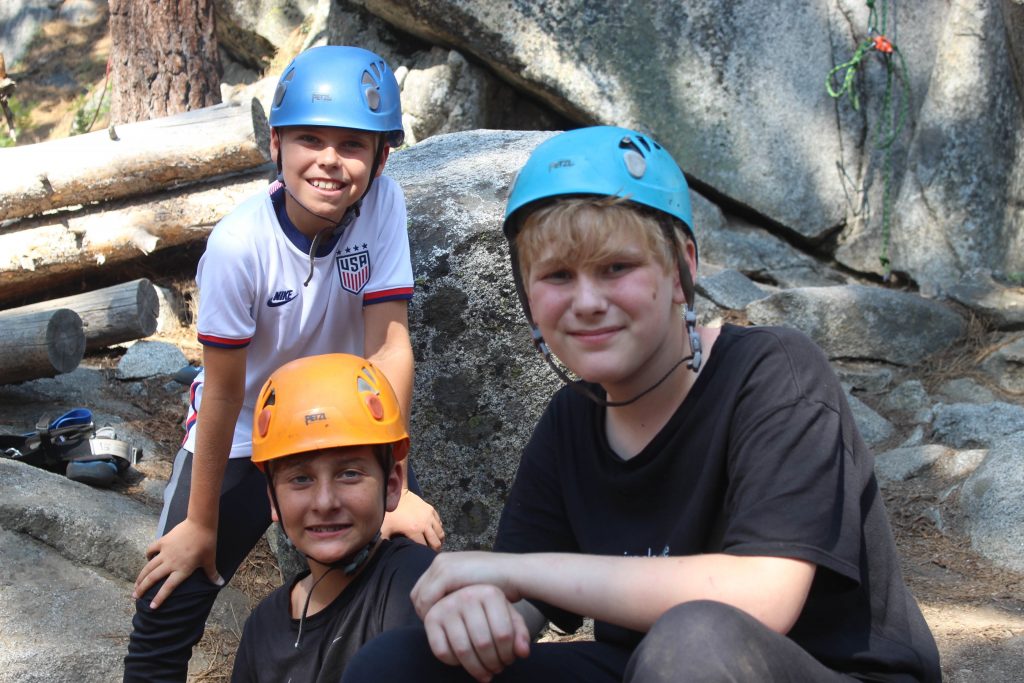
Our oldest campers shared that they learned how to be happy, “to just have fun and not worry so much.” In a time when so many young people struggle with depression and anxiety, it was heartwarming to hear that, for many of them, camp is their “happy place.”
Campers also said they learned to be happy in their own skin, gaining confidence in their abilities, speaking up for things they believe in, and worrying less about what others think of them. “I have the freedom to be myself,” said one. Added another, “When I am at camp, I am a better version of myself than anywhere else on Earth.”
Being their truest selves, they found, paved the way for them to meet new people and explore new friendships. “Camp has made me a more open and caring person,” said one. At camp, many said they experienced a sense of belonging they didn’t always feel in their schools.
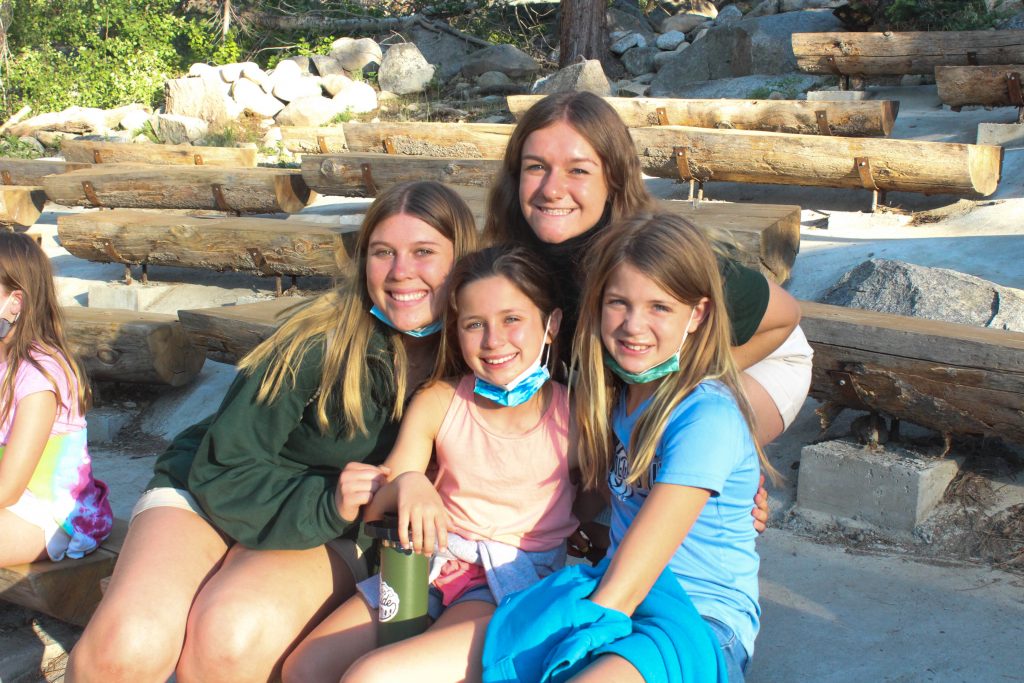
This comfort at camp enabled them to take risks and conquer fears, and they challenged themselves in new and adventurous ways. It didn’t matter if they failed, they said, because they were surrounded by counselors and friends who supported them no matter the outcome. “I’ve learned that the magic happens,” said one, “outside of your comfort zone.”
But among the sentiments that cheered me most from those older campers was the idea that camp helped them learn to live in the moment, to enjoy where they were in the Great Outdoors, and not worry about what the future held. Said one, “I found a passion for the outdoors I thought I would never have.” That’s what tends to happen, of course, when kids are unplugged from their technology for a time. Experiences and relationships are more vibrant and real, and kids expressed how great it was to connect face-to-face.
I really loved the way one camper put it: “When I was put in a cabin group with seven other random girls, we bonded really well and didn’t judge each other before we got to know them, because we had never seen each other’s social media profiles.”
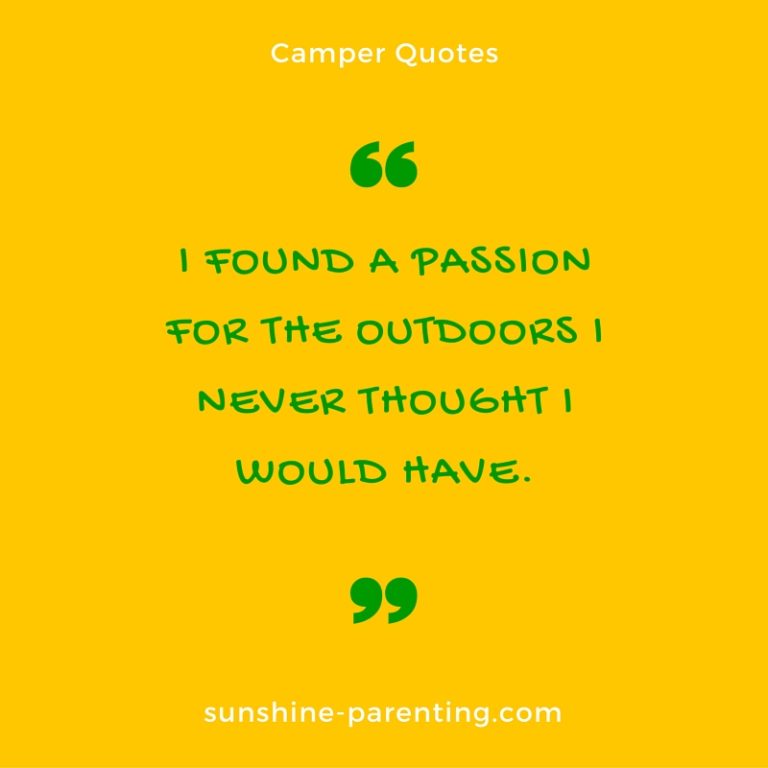
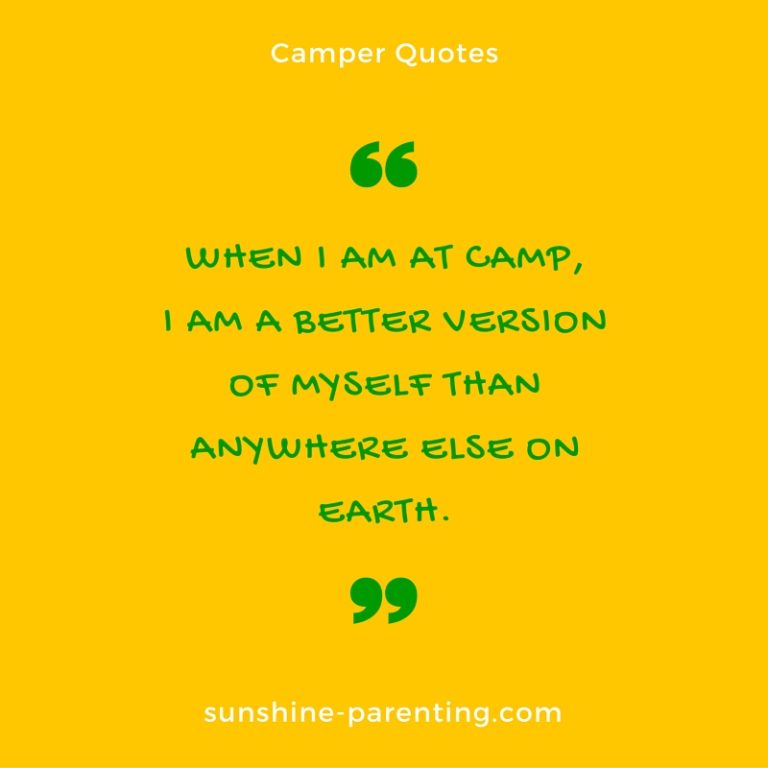
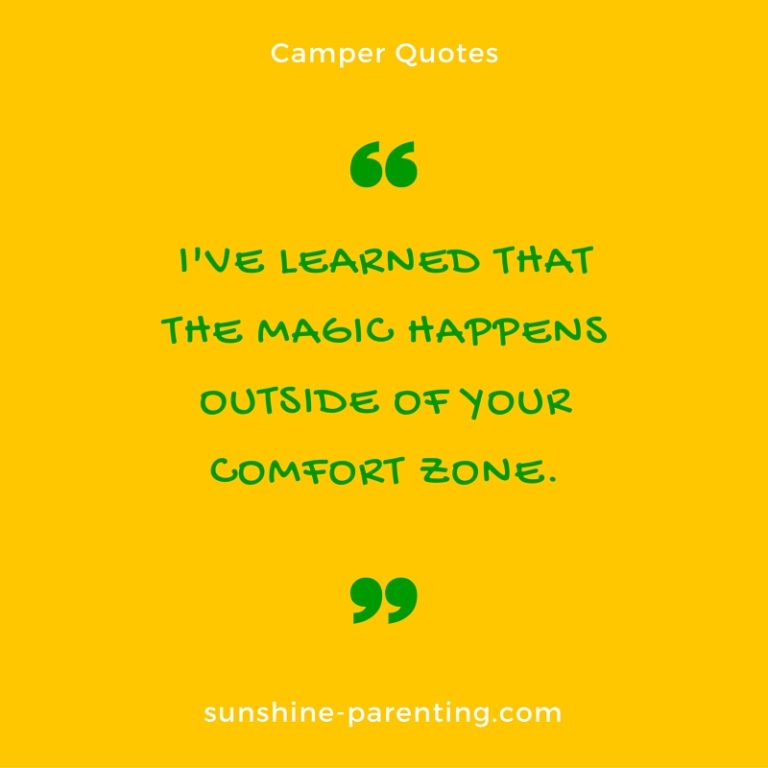
I reflect back on those and other words and see that these 15-year-olds have wisdom that many adults have yet to acquire. Truly, I was blown away by what they said they learned at camp, and I could see in their spirits what one of them expressed: “Being at camp has influenced me to be a better person who wants to be a leader, not a follower.” I feel honored to know these articulate, honest, and thoughtful young adults who do not fit the teenage stereotype and are far more mature than I was at their age. These kids chose sleeping outdoors and sitting around a campfire instead of hunching over their phones.
When I look back on those memorable campfires, I feel deep gratitude for our oldest campers, the life-changing experiences they had at camp, and that I had the opportunity to play a small role in their learning. I am also grateful for the parents of these kids who were willing to share time with their children, and a piece of their childhoods, with our camp. And I am reminded, as a parent, that although there are many things I want my kids to learn—and I’d love to be their teacher—many of their best lessons will come from experiences apart from, and from someone other than, me.
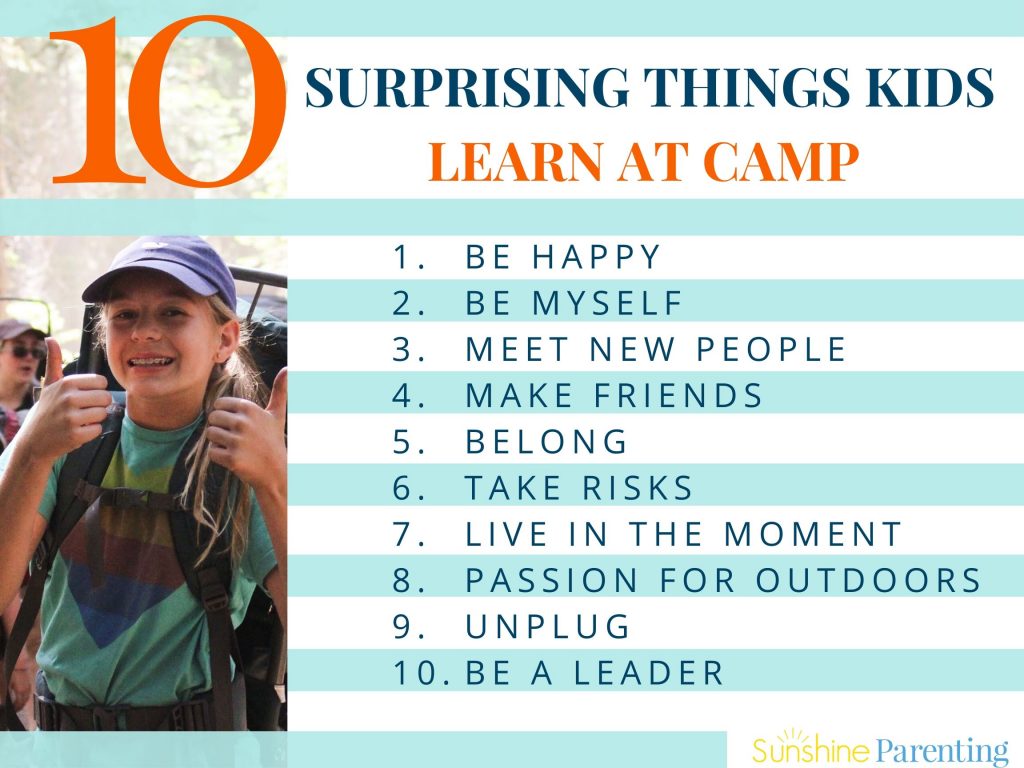
Article originally published at Sunshine Parenting.
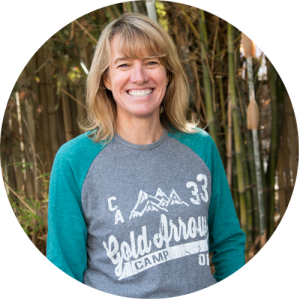
Audrey “Sunshine” Monke, MA, has been the owner of Gold Arrow Camp since 1989 and currently serves as the Chief Visionary Officer. In addition to her vision-casting and mentoring at GAC, Sunshine is an author (Happy Campers: 9 Summer Camp Secrets for Raising Kids Who Become Thriving Adults), podcast host, speaker and coach on the topics of parenting, social skills, and happiness. Find out more at her website, Sunshine Parenting.
Visit Sunshine Parenting for more summer camp-related posts & podcast episodes.
Messages For An Anxious Camper
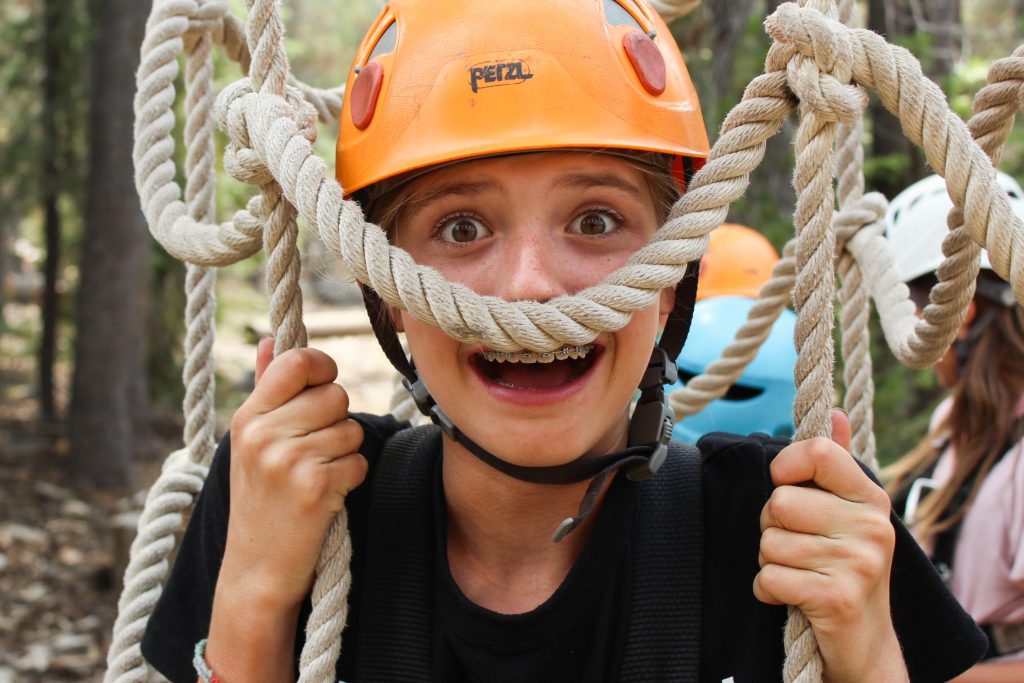
Read more of Sunshine’s camp-related posts at her website, Sunshine Parenting.
“Children want to be independent, and they realize that they cannot be truly independent until they beat homesickness, even when they have a painful case of it.”
– Michael Thompson, PhD., Homesick and Happy
Recently I spoke with a mom whose 11-year-old son is coming to camp in a few days. He’s nervous. He had a negative experience at a one-week science camp. He doesn’t think he can “make it for two weeks” and is worried he’ll be too homesick to make it at camp. I chatted with the mom and gave her some key messages to communicate to her son. She asked for them in bullet points in an email, and I thought there are probably others who might benefit from this same list, so I’m sharing this with anyone who has a child suffering from pre-camp anxiety.
Before I share my list, let me say that if you are not a camp proponent and don’t plan on sending your child to camp, you should probably not read any further. I am a huge supporter of camp and recently had a JC (Junior Counselor) tell me that “Camp made her who she is today.” So, I think that camp is a great thing for building kids’ independence and confidence. I have also seen many kids work through some pretty painful emotions at camp, so I know that camp is not easy for all kids.
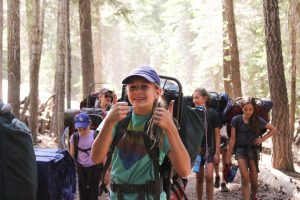 We have 7-year-olds at our camp who do great during our two-week sessions. They are the ones who’ve begged their parents to let them come to camp and generally have older siblings who’ve attended camp. I also talk to a lot of parents with older kids who “aren’t sure if they’re ready for camp.” One thing I’ve learned after close to three decades at camp is that the same kids who are anxious and hesitant about going to camp when they’re nine or ten will still be anxious when they’re 13. And they may not be interested in going away to college when they’re 18, either.
We have 7-year-olds at our camp who do great during our two-week sessions. They are the ones who’ve begged their parents to let them come to camp and generally have older siblings who’ve attended camp. I also talk to a lot of parents with older kids who “aren’t sure if they’re ready for camp.” One thing I’ve learned after close to three decades at camp is that the same kids who are anxious and hesitant about going to camp when they’re nine or ten will still be anxious when they’re 13. And they may not be interested in going away to college when they’re 18, either.
So, as a parent, you need to decide how to approach your child’s separation anxiety, as well as your own. You can avoid it and not send them to camp and hope that they develop independence in other ways, which is definitely possible. Or, you can bite the bullet, give them these positive messages, and send them off to camp with a smile, knowing that it may be hard for them, but they will grow from the experience.
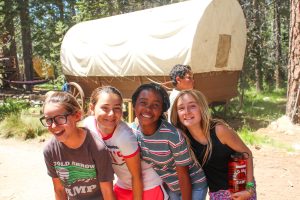
In Michael Thompson, PhD.’s book Homesick and Happy, he says “It is the very challenge of camp that makes it such a life-changing experience for so many children.” I know there are many parents and children who just can’t stomach the idea of going through some painful time apart. Again, you need not read further if you are not sending your reluctant child to camp.
This post is for those of you who have decided that your child is going to camp, and especially for those of you who had a previously excited camper who is now having last-minute camp anxiety. Here are some messages you can give prior to dropping your camper at the bus or at camp. Pick and choose, and of course, use your own words, but acknowledge your child’s feelings and empathize with them while holding firm in your confidence in their ability to succeed and your belief that camp will be good for them.
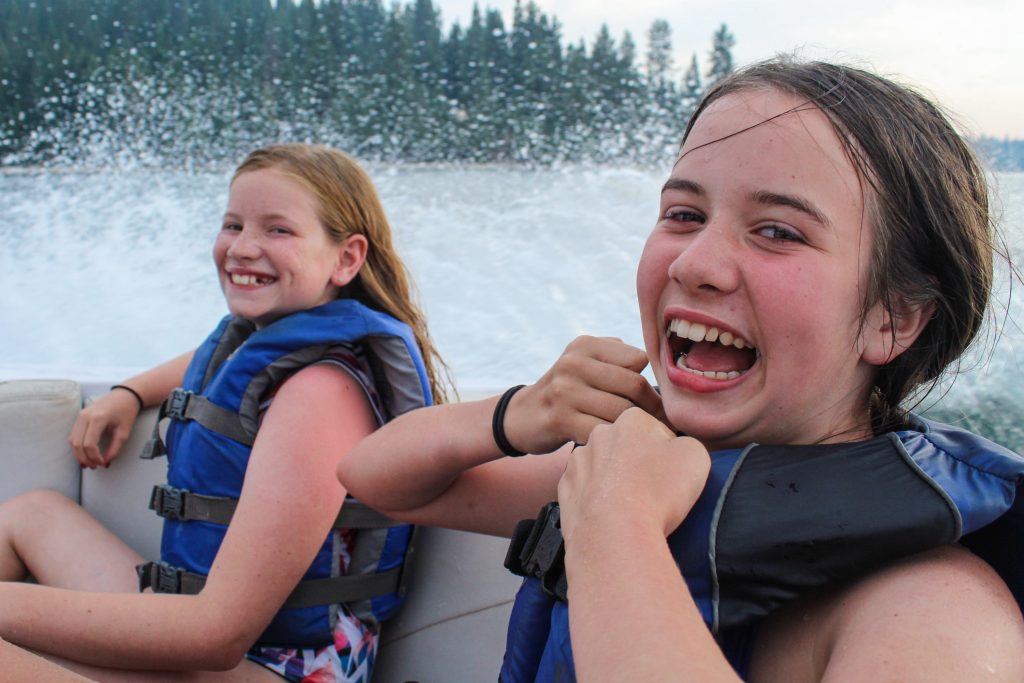
Without further ado, here are some messages to give to your anxious camper:
-
Let them know that missing home is okay.
“You may feel homesick, and that’s okay. A lot of kids feel that way. That just means that you love us and you love home. I feel homesick when I’m on trips, too. Missing home is part of life. But I know you can still have fun at camp, even if you feel sad sometimes.”
-
Reassure them that there are people at camp who will take care of their needs.
“There are adults at camp (counselors, directors) who are there to take care of you and help you with anything you need. They can help with things you normally come to me about. Let them know if you are feeling sad, and they can help you. They have lots of experience working with kids who are away from home for the first time.”
-
Talk with your child honestly about the importance of starting to develop some independence.
Something along the lines of: “It may seem like a long way off, but in a few years, you’ll be ready for college. I want you to feel confident in your ability to live away from me so that you can choose any school you like, even if it’s far away from home. Think of camp like your practice time for when you’re older and ready to move away for school or a job. You’ll get better at being independent by starting now, when you’re young, with short spurts of time away. Some kids aren’t doing well when they start college because they don’t have any experience being away from home. I want you to feel great when you go to college because you’ll know that you’ve already been successful with short camp stays.”
-
Share the reality that many good things in life come with some pain and failure.
If you have a story from your own life of something that you had to work hard at or had to go through difficulties in order to master, this is a great time to share. Something along the lines of, “Many good things in life aren’t easy at first. Learning a new sport or trying something new is really hard. Sometimes you have to get out of your comfort zone to discover something you really love. If you never go through anything hard, you’re going to miss out on some great experiences. The first few days of camp may be hard, and that’s okay. I know you’ll work through it and figure out what makes you feel better. I have confidence in you, and I am so proud of you for going to camp and trying this new adventure!
-
Let them know that you are confident in them.
“I am so excited that you get to go to camp this year. I know it’s going to be such a great experience for you and that you are ready for this.” If you went to camp, share with your camper what you liked about it and how you grew from the experience.
-
Make sure they know you want to hear about everything.
“Every day comes with its good and bad parts. When you’re at camp, I want you to write me letters and tell me all of the stuff that you’re doing and feeling. If you feel homesick at rest time, tell me about it, and also tell me what you did to help yourself. Did you talk to your counselor? Keep yourself busy playing cards with friends? Write me a letter? I also want you to share good stuff. Did you get your favorite food for lunch? Try rock climbing? Get up on a kneeboard? I want to hear both the good and bad things about camp in your letters.”
-
If your camper asks you if you will pick him up if he’s sad, you need to let him know that you are not going to pick him up early.
“Even if you’re a little homesick for the whole time you’re at camp, you’re going to feel so much better about the experience if you stick it out and make the best of it. Most kids feel better after a few days of getting settled in and adjusted, and I know you’ll feel great once you let yourself relax and just start enjoying all the fun things at camp. I’m not going to pick you up early, no matter what, because I know you will feel really proud of yourself for making it through camp, even if you have some hard days.”
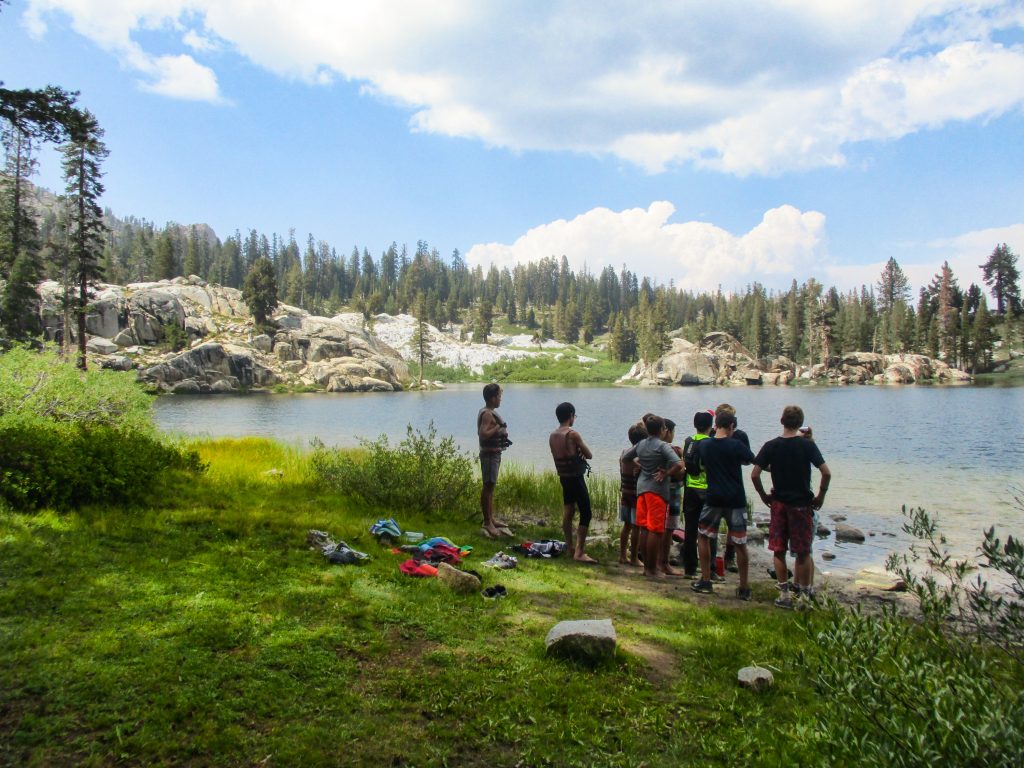
In Homesick and Happy, Thompson says, “Homesickness is not a psychiatric illness. It is not a disorder. It is the natural, inevitable consequence of leaving home. Every child is going to feel it, more or less, sooner or later. Every adult has had to face it and overcome it at some point in life … If you cannot master it, you cannot leave home.”
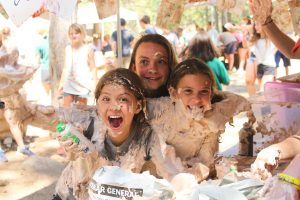
I would like to note that you do not need to use all of these messages but instead choose the ones you think will resonate most with your child. What’s most important is that you express confidence in your child and in the camp experience. These same messages would be great as responses to a sad letter you receive from your camper.
I always tell the kids that the fun and happy feelings at camp usually far outweigh any sad feelings. Many kids tell me they “don’t feel homesick at all,” but there are some who struggle, especially during their first summer. Those kids seem to grow the most and feel the most pride in their accomplishment of staying at camp. If you are feeling worried about how your child will do at camp, know that you are giving your child a precious gift by allowing them this special time where they get to grow their wings.
10 Parenting Tips from Camp Counselors
At one time in their lives, many of the parents I know were camp counselors. Those same people have told me that their time spent as counselors was great training ground for parenting. Among other things, they learned to comfort, encourage, set goals, and resolve disputes — all things we experience daily in our lives as moms and dads.
At one time in their lives, many of the parents I know were camp counselors. Those same people have told me that their time spent as counselors was great training ground for parenting. Among other things, they learned to comfort, encourage, set goals, and resolve disputes — all things we experience daily in our lives as moms and dads.
However, not every parent has had the benefit of camp counselor training. In fact, most parents have had NO training at all. Perhaps they took a Lamaze class or two, but we all know that having the kid is not the hardest part!
I’ve often lamented that all parents should be required to go through some training, at least the same training camp counselors do (a minimum of one week at most camps). Unfortunately, that is not the case, nor is it realistic. So the best we can do for those who were never camp counselors is offer a few tried and true tips from a few outstanding folks who were:
1. Practice catching kids doing the right thing.
2. Check in with each child one-on-one every day.
3. Establish fun daily traditions: share highs & lows at dinner or bedtime, do riddles, read a book out loud, play games together, collect family memories.
4. Sing and dance together A LOT.
5. Smile and stay positive. Apologize for any crabbiness.
6. Address difficult issues privately and by focusing on the ISSUE not the child.
7. Do team-building activities like sharing goals and dreams.
8. Get unplugged and focus on face-to-face communication.
9. Get outside and get dirty.
10. Follow a predictable schedule and enforce rules consistently.
Luna
Episode 47.
Luna, who is a student at the Art Institute of Chicago as well as being an Arts & Crafts Counselor at GAC, stopped by the POG-Cast to chat about art, creation, and her favorite parts of working at camp. In addition to being an Arts & Crafts Counselor, Luna was also a Group Counselor for a session in 2019, so she had great insights into what it was like to do both of those jobs. There’s also a GACspiration and a dad-joke-based Joke of the Cast.
Podcast: Play in new window | Download
Subscribe: Apple Podcasts | Spotify | Email | RSS
Hilly
Episode 46
This week, Soy is joined by Hilly, who came to camp on a J-1 Summer Camp Counselor Visa last year. They talk about what Hilly learned about the United States, the hardest and easiest parts of being a Group Counselor, and the POG-Cast speed round. There’s a reptile based Joke of the Cast and an artistic GACspiration.
Podcast: Play in new window | Download
Subscribe: Apple Podcasts | Spotify | Email | RSS
April!
Episode 40.
The GAC POG-Cast is over the hill! We’re also over the moon that April joined us to talk about her role as a photographer at camp last summer. She also had great insight on how to deal with the fear that coming to camp sometimes creates in campers. Soy is back to playing guitar and telling Dad jokes and there’s a GACspiration too!
Podcast: Play in new window | Download
Subscribe: Apple Podcasts | Spotify | Email | RSS
